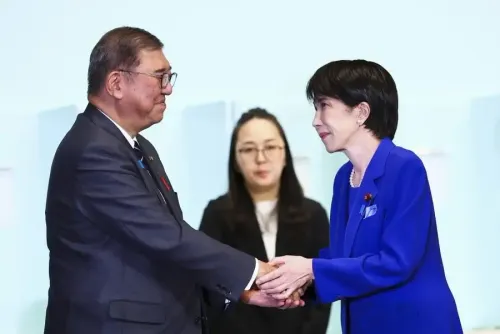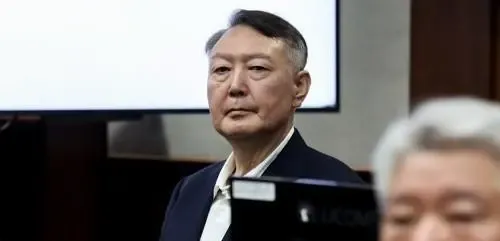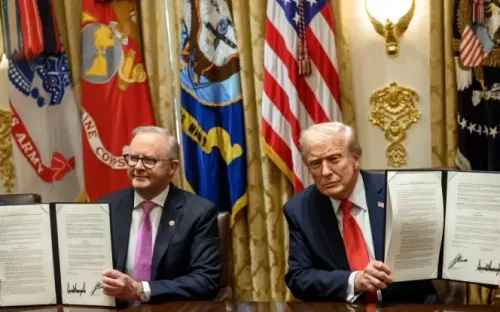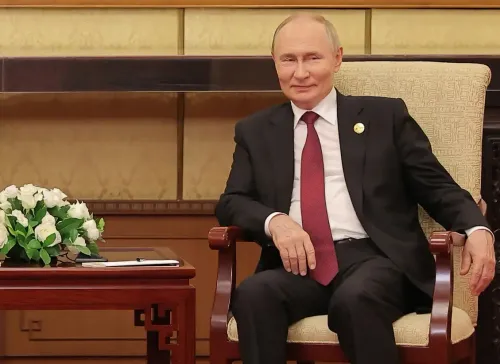Are Conflicts of Interest Undermining Parliamentary Decision-Making in Pakistan?
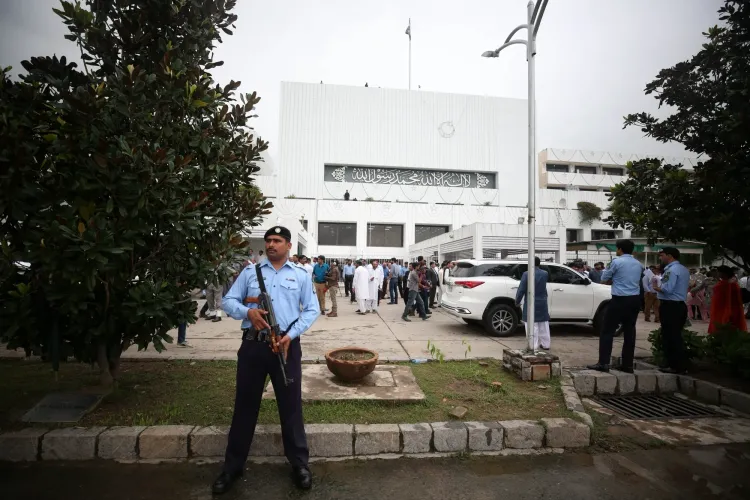
Synopsis
Key Takeaways
- Parliamentary conflicts of interest are prevalent in Pakistan.
- These conflicts can lead to policy decisions that favor lawmakers' business interests.
- Current laws are inadequate in preventing these conflicts.
- Reform is essential for restoring public trust in democracy.
- Active citizen engagement is crucial for accountability.
Islamabad, Sep 2 (NationPress) Conflicts of interest infiltrate the decision-making process in Pakistan's parliament, influencing both policies and perspectives. This issue is underscored by a report released on Tuesday, which suggests that citizens view parliament not as a representative body, but as an exclusive club of businessmen legislating for their own benefit.
The implications are both economic and political, as each emerging scandal diminishes the credibility of democratic institutions, fostering public cynicism and disengagement, noted public policy expert Amir Jahangir in an opinion piece for The News International.
"The integrity of our democracy is compromised when lawmakers with direct business interests are involved in decisions regarding policies and projects that could benefit them financially. This issue is particularly evident in Pakistan's Standing Committees of the Senate and National Assembly, where oversight often devolves into self-serving opportunities. A recent incident concerning a donor-funded project has intensified these concerns," he remarked.
Jahangir pointed out that, for many years, a limited number of politically-connected companies, often criticized for cartel-like practices, have dominated Pakistan's infrastructure sector. The entry of a competitive foreign state-owned firm has disrupted this trend. By manipulating parliamentary committees to enforce re-tendering, these vested interests are not ensuring transparency but are instead safeguarding their own monopolistic practices. This highlights the urgent need for conflict of interest regulations.
The expert, who heads the Country Partner Institute of the World Economic Forum in Pakistan, stated that the sugar crisis of 2020 exemplified the influence of industry cartels with political backing. An inquiry by the government commission revealed how prominent political families profited through subsidies, manipulated prices, and favorable export policies. At the time, some of these leaders were part of the parliamentary committees overseeing commerce and industry, resulting in regulatory leniency while consumers faced increased prices and cartels strengthened their grip.
The conflict of interest is also evident when lawmakers with stakes in television networks partake in drafting regulations for the Pakistan Electronic Media Regulatory Authority (Pemra), broadcasting policies, or advertising rules.
"How can individuals benefiting from media monopolies effectively regulate competition, ownership consolidation, or ethical standards? Instead of creating a fair environment, the outcome has led to further concentration, with regulatory frameworks skewed to protect incumbents. The decline of media diversity and independence ultimately erodes public trust and democracy itself. The intertwining of sugar cartels, media monopolies, real estate empires, and now infrastructure contracts indicates that Pakistan's challenges are deeply systemic," he asserted.
"While Pakistan has relevant laws, their implementation is lacking. Article 63(1)(d) of the constitution disqualifies members holding 'an office of profit in the service of Pakistan.' Article 63(1)(o) extends this disqualification to members whose dependents are employed by statutory bodies. However, these clauses are strictly interpreted concerning government service, not considering extensive family-owned enterprises or contracting firms. The Elections Act, 2017 (Section 137) mandates lawmakers to declare assets, while Section 111 allows for suspension or disqualification for false declarations. Yet, there is no provision preventing participation in legislation or oversight related to these business interests. Although parliament's own regulations aim to address these issues, they remain ineffective," Jahangir concluded.

